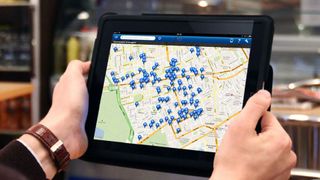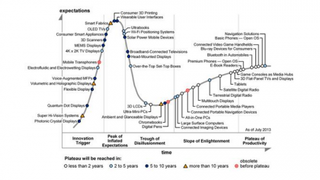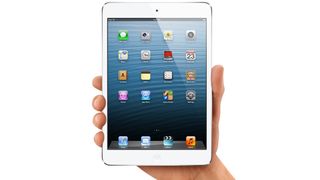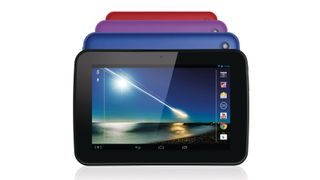How tablets, 3D printing and touchscreens are gearing up for business
Which companies are riding Gartner's Hype Cycle this year?

Remember when using your smartphone at work posed a real risk of it being confiscated until the end of the day? Depending on who your employer is, that may still happen.
However, "bring your own device" (BYOD) - the phenomenon of staff using their own devices at work - means that many organizations are now looking to foster productivity and boost business results by supporting employee-owned smartphones, tablets and other devices.
"People are bringing in private devices to the workplace that are technologically more advanced and easier to use than they have at work," explains Gartner analyst Meike Escherich. "As such, what starts off in the consumer space nowadays ends up in the enterprise."
Each year analyst house Gartner identifies various consumer technologies with the potential to disrupt business over the next decade. It does this partly by studying data from its quarterly shipment forecasts.
Once collected, the results are made into the company's Hype Cycle for Consumer Devices, a document aimed at helping organizations time investments for when products go "mainstream."
How does it define mainstream? "When around 40% of the possible market has adopted it," explains Escherich. "The possible market is something you could argue about forever, but that's the way we distinguish it. We track how many companies product certain devices, and we know what's going on in R&D departments to a degree."
This year, Gartner has plucked out tablets, multi-touchscreen displays and 3D printing to lead the pack for technologies with the potential to breakthrough into the enterprise.
Are you a pro? Subscribe to our newsletter
Sign up to the TechRadar Pro newsletter to get all the top news, opinion, features and guidance your business needs to succeed!

Technology #1 - Tablets
In the consumer space, the tablet explosion kicked off when Apple's iPad landed back in 2010. According to Gartner, such devices are poised to have a transformational effect on business within the next two years.
A survey by the analyst house conducted earlier this year found that 60% of consumers in Western Europe and the US use their tablet at least once a day for business activity.
"There's no question that tablets are going to work their way into the enterprise on all levels," says Escherich. "People are using them for anything from accessing email and company data or writing reports, whether that's using the tablet in the office or accessing company data at home over its network."
But what will be the most popular platform? Apple recently flexed its enterprise muscles with iOS 7, which introduced a multitude of new features to help mobile device management (MDM) providers offer better solutions.

However, Escherich says that Android tablets stand a real chance of catching up for two reasons. First, she says that the introduction of lower-priced models will boost popularity among consumers.
Then there is the increasing number of MDM solutions appearing on the Android platform, she adds, including "very interesting virtualization and hypervisor-based software solutions."

Despite Windows 8 tablets making headway by introducing numerous form factors, such as hybrid 2-in-1 "convertible," devices toting Microsoft's tile-based OS are struggling to enter the enterprise, according to Escherich.
"I think we'll see a slow but continual update during 2014 when we're got the next technology CPU wave coming in with Bay Trail and Haswell, which are going to allow immediate on and greater graphic capabilities," she says.
Despite this, Escherich believes tablets toting Microsoft's platform will remain behind for the next "two or three years" in the consumer space, even if they are the preferred option for IT departments. "They favor them because they can run legacy applications and cope better with security issues."
Whereas other platforms are geared for general purpose use within business, Windows 8 tablets are more suited to individual use cases, explains Escherich.
"You'll find companies purchasing them for quite specific tasks, for example engineers in the field, or medical staff walking the wards," she says. "They're targeted quite specifically at verticals in that sense."

